CELEBRATING LAND-GRANT TRIBAL COLLEGES AND UNIVERSITIES
OCTOBER 20, 2024
CELEBRATING LAND-GRANT TRIBAL COLLEGES AND UNIVERSITIES
OCTOBER 20, 2024
This year marks the 30th anniversary of the Equity in Educational Land-Grant Status Act of 1994, a pivotal moment that established the land-grant status of Tribal Colleges and Universities (TCUs) across the United States, after many years of hard work and advocacy from the American Indian Higher Education Consortium (AIHEC) and others.
This year marks the 30th anniversary of the Equity in Educational Land-Grant Status Act of 1994, a pivotal moment that established the land-grant status of Tribal Colleges and Universities (TCUs) across the United States, after many years of hard work and advocacy from the American Indian Higher Education Consortium (AIHEC) and others.
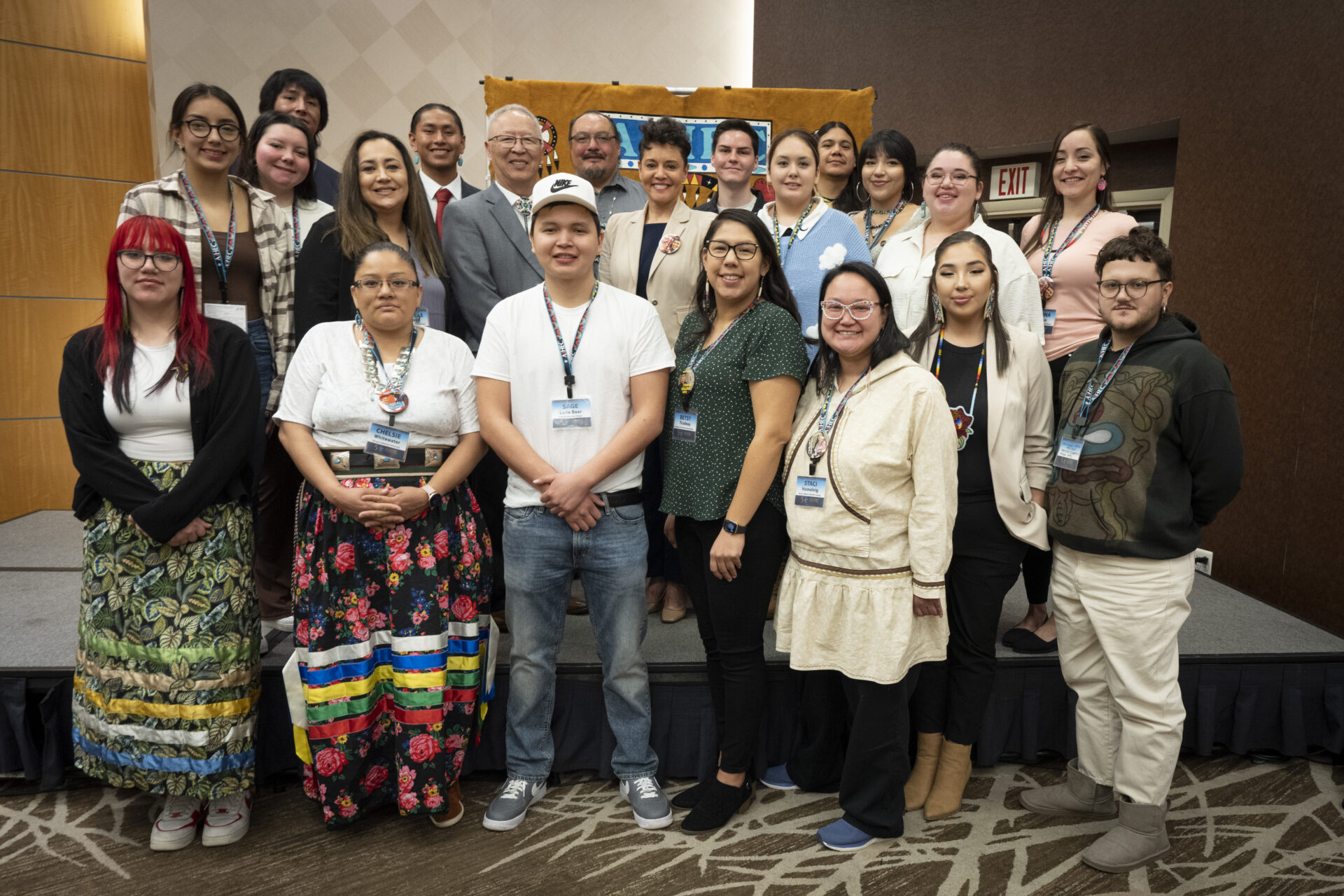
Photo courtesy of Tom Witham, USDA.
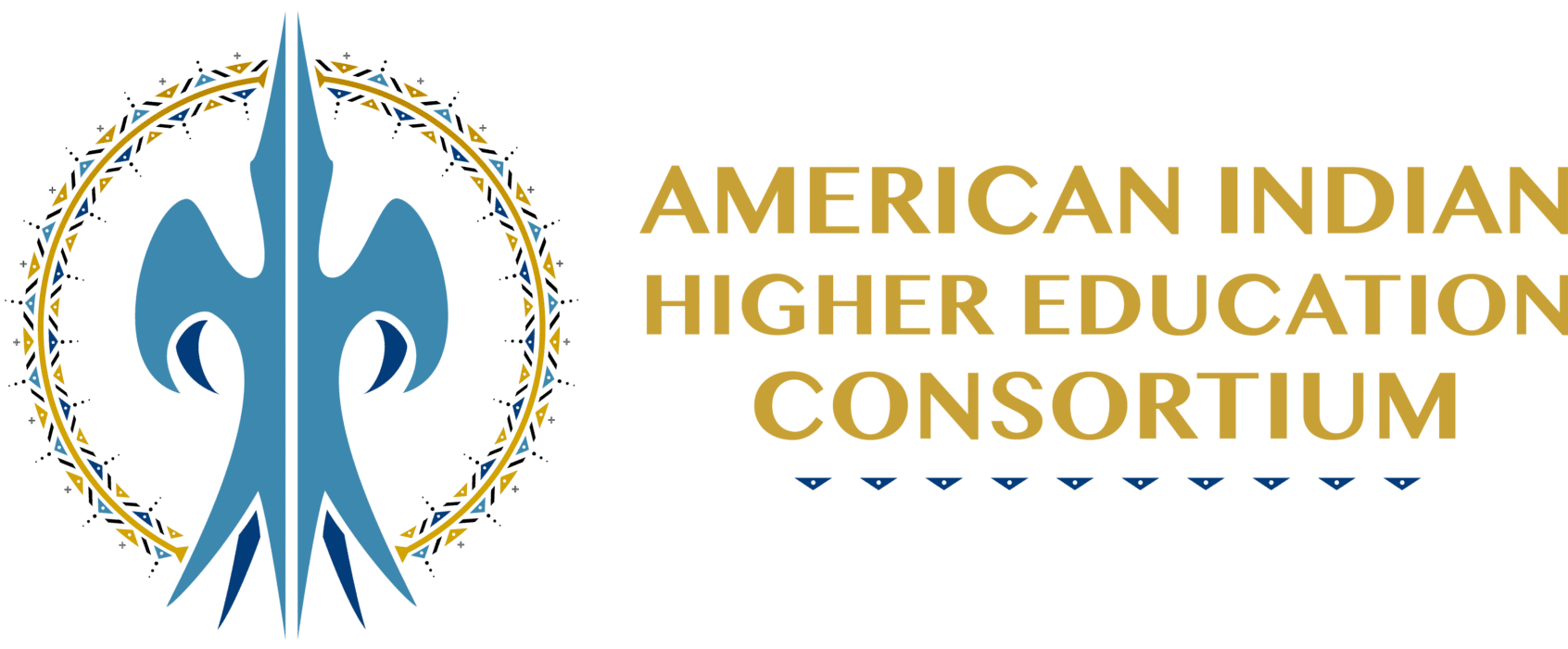
American Indian Higher Education Consortium (AIHEC)
American Indian Higher Education Consortium (AIHEC) provides a support network to the nation’s accredited Tribal Colleges and Universities (TCUs) and works to influence public policy on American Indian and Alaska Native higher education issues through advocacy, research, and programmatic initiatives; promotes and strengthens Indigenous languages, cultures, communities, lands, and tribal nations; and through its unique position, serves member institutions and emerging TCUs.
What does being part of a TCU mean to you?
"It means I’m looking to my future and taking charge."
"It means I am taking full advantage of all the hard work of well-meaning elders and relatives of the past who fought for the betterment of my educational future. It means I am showing my children it can be done. It means I am pushing myself to tap into the core values of my ancestors and I know I am making them proud."
FULFILLING THE LAND-GRANT MISSION
Through their education, research, and Extension programs, the 1994 Tribal Colleges and Universities open doors to greater career opportunities for American Indian and Alaska Native students, improve health and well-being of their communities, and enhance local food production and sustainability. Their land-grant programs focus on natural resources and the environment, health and wellness, economic and community development, youth development, agriculture, and much more.
NORTHWEST INDIAN COLLEGE
Sequencing and analyzing environmental DNA is an important part of natural resource management in tribal communities in the Pacific Northwest.

TCU BUILDING BRIDGES GRANT PROGRAM SELECTS FIRST COHORT
AIHEC
The Tribal College and University (TCU) Building Bridges Grant Program awarded over $500,000 in its first cycle of selections. The program's goal is to broaden TCU student participation in science, technology, engineering, and mathematics (STEM) programs through projects that enrich and support course and curriculum development, expand research activities, and increase student engagement.
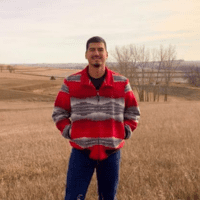
Photo courtesy of USDA.
LITTLE PRIEST TRIBAL COLLEGE
Trey Blackhawk, an enrolled member of the Winnebago Tribe of Nebraska, and Environmental Science major, shares his experience serving as a 1994 Tribal Scholar at the U.S. Department of Agriculture (USDA).

HASKELL HOSTS BISON HARVEST WORKSHOP AHEAD OF COMMUNITY COOKOUT
HASKELL INDIAN NATIONS UNIVERSITY
Bison have sustained many Native American tribes for centuries as a source of food, clothing and tools. Haskell Indian Nations University recently shared the bison’s deep cultural significance with the general public through a harvest workshop and community meal.

Photo courtesy of Diné College Tuba City Center.
DINÉ COLLEGE STUDENT CONDUCTS GROUNDBREAKING RESEARCH
DINÉ COLLEGE
With the surge in vector-borne infections worldwide, the United States has recently experienced an increase in the abundance and distribution of mosquito-borne infections. Harrison Cayatineto is conducting groundbreaking research on bovine viral diarrhea (BVDV).

MANOOMIN (WILD RICE) CAMP
KEWEENAW BAY OJIBWA COMMUNITY COLLEGE
The Keweenaw Bay Ojibwa Community College (KBOCC) held a Manoomin (wild rice) Camp for community outreach, sharing information about the preparation and importance of one of the most valuable crops to the Keweenaw Bay Indian Community.
INDIGENOUS PUBLIC HEALTH SUMMIT
SALISH KOOTENAI COLLEGE
Healthcare workers from across Montana gathered at Salish Kootenai College to address critical public health issues Indigenous communities face.
FULFILLING THE LAND-GRANT MISSION
Through their education, research, and Extension programs, the 1994 tribal colleges and universities open doors to greater career opportunities for American Indian and Alaska Native students, improve health and well-being of their communities, and enhance local food production and sustainability. Their land-grant programs focus on natural resources and the environment, heath and wellness, economic and community development, youth development, agriculture, and much more.
SWEETGRASS RESEARCH SERIES: ENVIRONMENTAL DNA AND PCR PROTOCOL
NORTHWEST INDIAN COLLEGE
Sequencing and analyzing environmental DNA is an important part of natural resource management in tribal communities in the Pacific Northwest.

TCU BUILDING BRIDGES GRANT PROGRAM SELECTS FIRST COHORT
AIHEC
The Tribal College and University (TCU) Building Bridges Grant Program awarded over $500,000 in its first cycle of selections. The program's goal is to broaden TCU student participation in science, technology, engineering, and mathematics (STEM) programs through projects that enrich and support course and curriculum development, expand research activities, and increase student engagement.

Photo courtesy of USDA.
LITTLE PRIEST TRIBAL COLLEGE
Trey Blackhawk, an enrolled member of the Winnebago Tribe of Nebraska, and Environmental Science major, shares his experience serving as a 1994 Tribal Scholar at the U.S. Department of Agriculture (USDA).

HASKELL HOSTS BISON HARVEST WORKSHOP AHEAD OF COMMUNITY COOKOUT
HASKELL INDIAN NATIONS UNIVERSITY
Bison have sustained many Native American tribes for centuries as a source of food, clothing and tools. Haskell Indian Nations University recently shared the bison’s deep cultural significance with the general public through a harvest workshop and community meal.

Photo courtesy of Diné College Tuba City Center.
DINÉ COLLEGE STUDENT CONDUCTS GROUNDBREAKING RESEARCH
DINÉ COLLEGE
With the surge in vector-borne infections worldwide, the United States has recently experienced an increase in the abundance and distribution of mosquito-borne infections. Harrison Cayatineto is conducting groundbreaking research on bovine viral diarrhea (BVDV).

MANOOMIN (WILD RICE) CAMP
KEWEENAW BAY OJIBWA COMMUNITY COLLEGE
The Keweenaw Bay Ojibwa Community College (KBOCC) held a Manoomin (wild rice) Camp for community outreach, sharing information about the preparation and importance of one of the most valuable crops to the Keweenaw Bay Indian Community.
INDIGENOUS PUBLIC HEALTH SUMMIT
SALISH KOOTENAI COLLEGE
Healthcare workers from across Montana gathered at Salish Kootenai College to address critical public health issues Indigenous communities face.

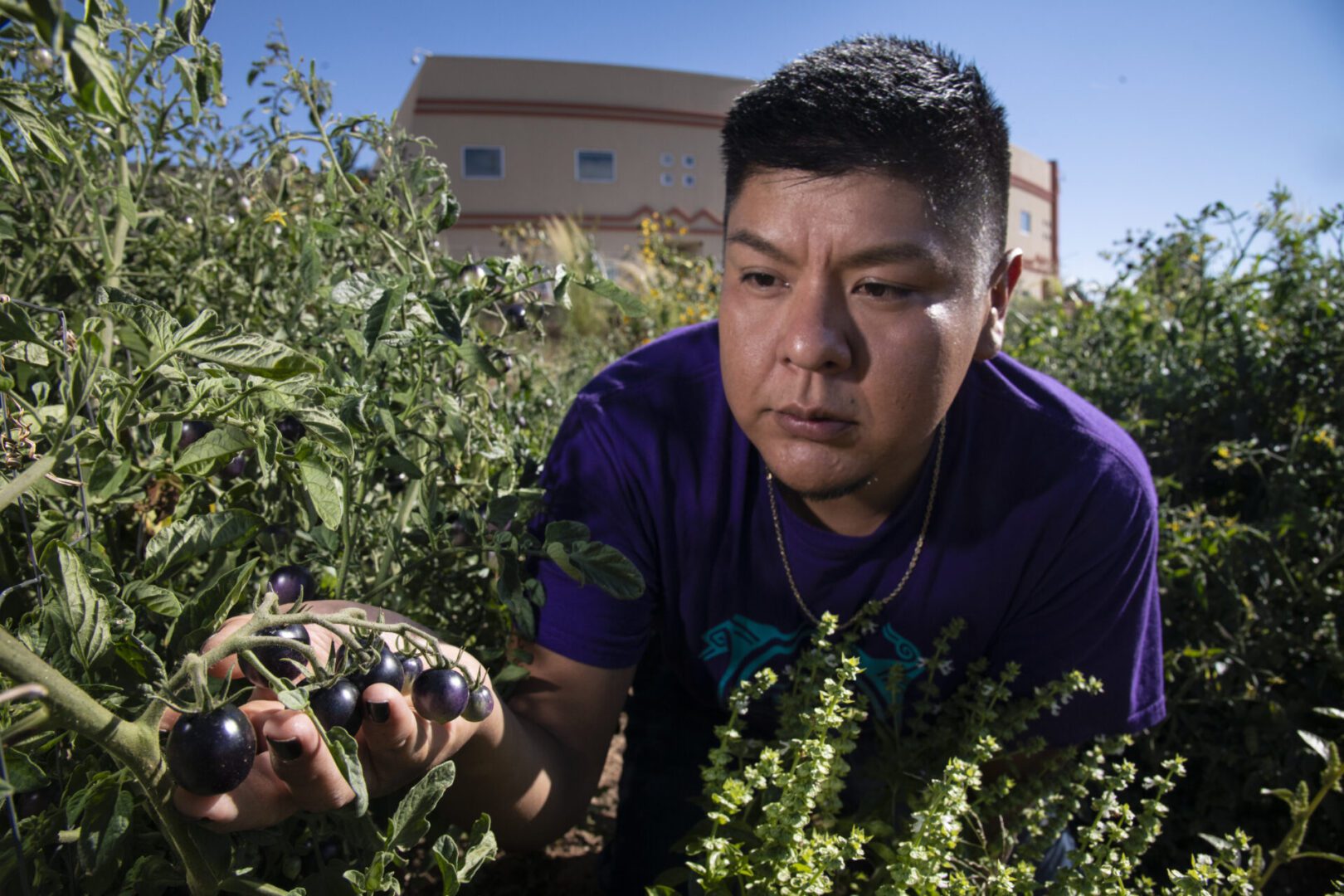
Photo courtesy of Lance Cheung, USDA.
USDA’s National Institute of Food and Agriculture supports the Tribal Land-grants primarily through six programs.
"The 1994 LGIs provide much-needed higher education, research and Extension services to Tribal communities in natural resources, agriculture, health and wellness and community development. They provide these services with culturally infused curricula and practices, blending the richness of indigenous knowledge with Western science."
USDA National Institute of Food and Agriculture

Photo courtesy of Lance Cheung, USDA.

USDA’s National Institute of Food and Agriculture supports the Tribal Land-grants primarily through six programs.
"The 1994 LGIs provide much-needed higher education, research and Extension services to Tribal communities in natural resources, agriculture, health and wellness and community development. They provide these services with culturally infused curricula and practices, blending the richness of indigenous knowledge with Western science."
STUDENT RESEARCHERS FOR CLIMATE CHANGE
The American Indian Higher Education Consortium (AIHEC) hosts the TCU Climate Resilience Student Research Program, a 12-week summer experiential learning opportunity through which undergraduate students participate in identifying and addressing climate change and energy issues in their respective American Indian and Alaska Native communities.
The program is designed for TCU students who are passionate about taking action to address climate change affecting Tribal lands and supporting Tribal leadership in all areas of Nation-building affected by climate challenges.
Meet some of the student researchers:
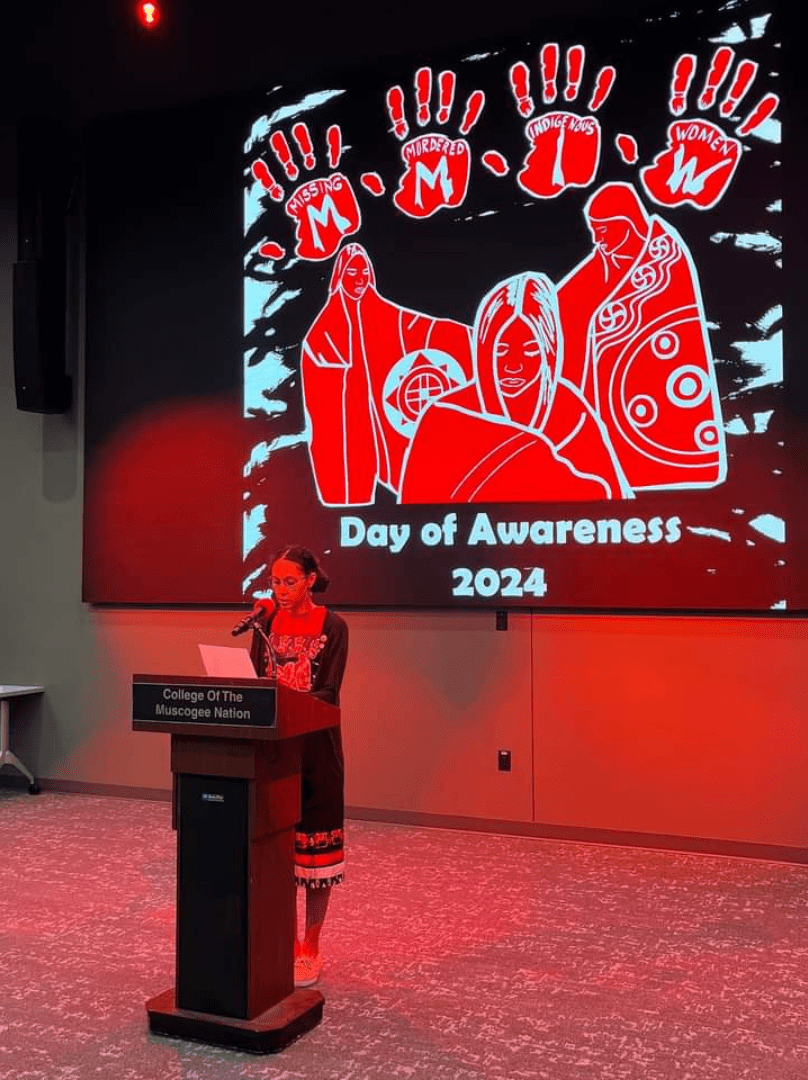
Ashley is a student at The College of the Muscogee Nation, class of 2024.
"I have always felt a connection to the land I inhabit. I combined the two with my passion for the environment and law for a future occupation. This internship gave me the experience I needed to see the more significant problems and how to research a way to bring some action to those problems. To incite the change, you have to be the change."
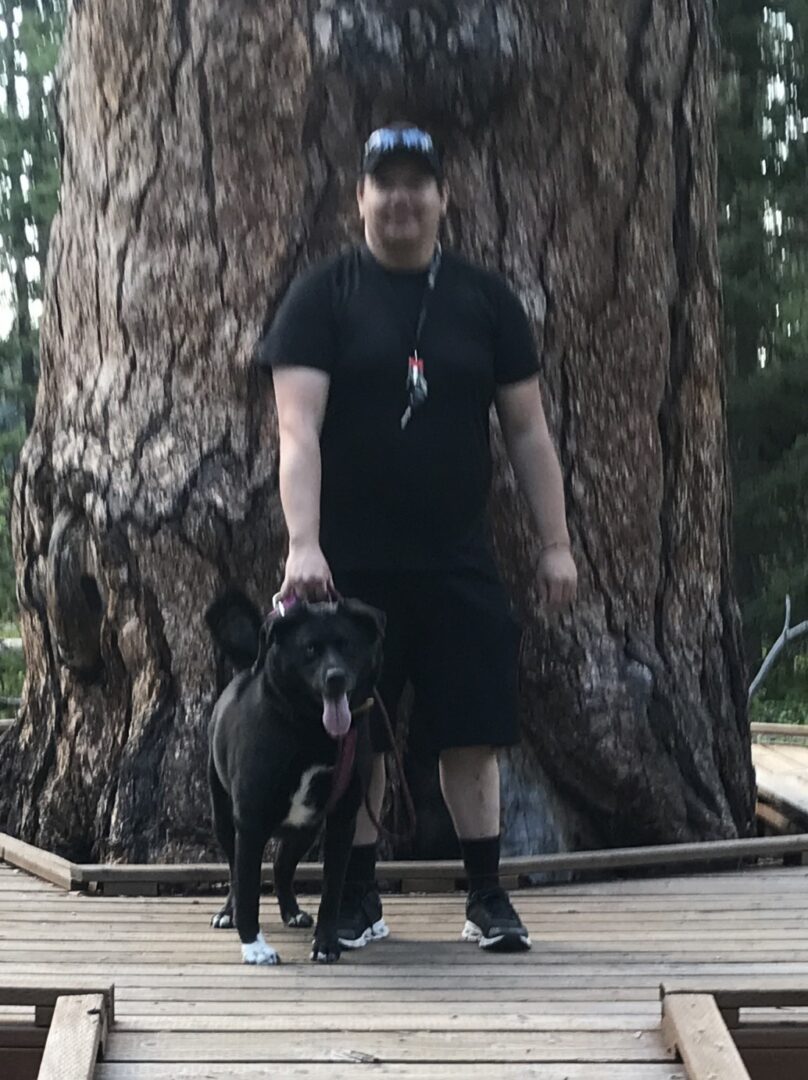
Charles Robert Wells
Charles is a student at Tohono O’odham Community College, class of 2025.
"Climate change affects everyone and everything nothing is immune to the effects of climate change, being able to understand climate change will be beneficial for the future so we can adapt."
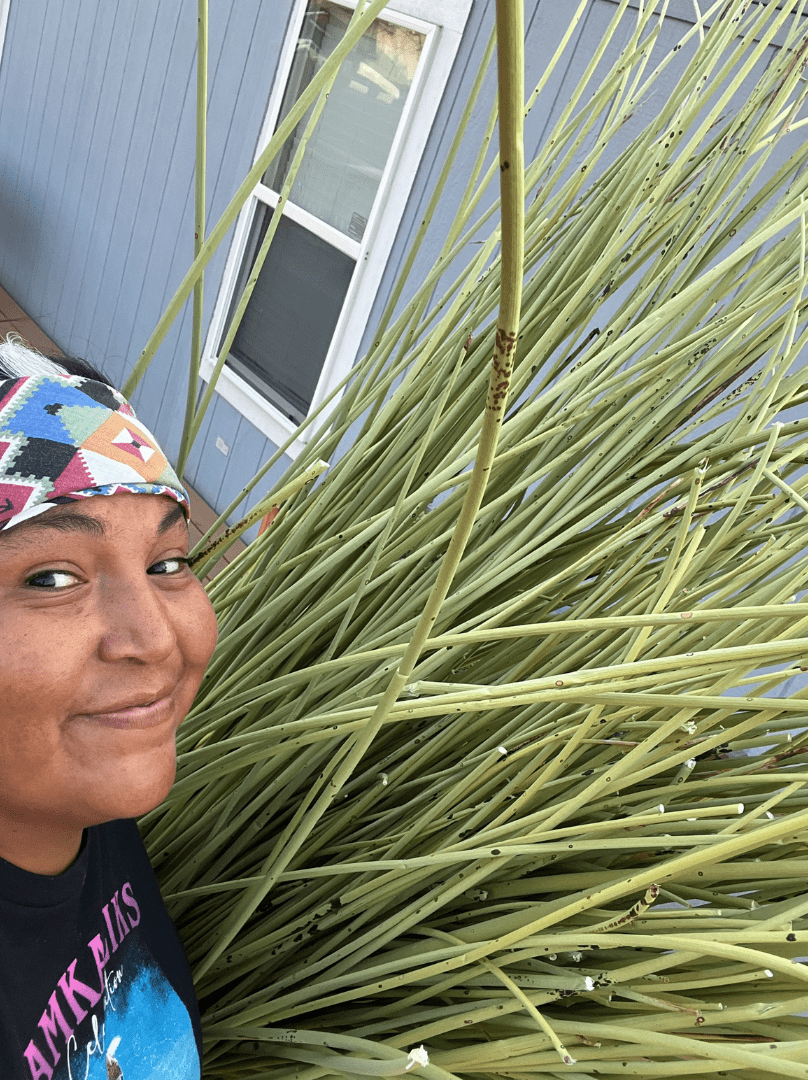
Gayla is a student at the University of Idaho, class of 2026.
"[The most significant takeaway from the program was] seeing and hearing from indigenous people from different parts of the United States about their experiences and the impact that climate change has on their communities. We are resilient people and we will not break easily."
STUDENT RESEARCHERS FOR CLIMATE CHANGE
The American Indian Higher Education Consortium (AIHEC) hosts the TCU Climate Resilience Student Research Program, a 12-week summer experiential learning opportunity through which undergraduate students participate in identifying and addressing climate change and energy issues in their respective American Indian and Alaska Native communities.
The program is designed for TCU Indigenous students who are passionate about taking action to address climate change affecting Tribal lands and supporting Tribal leadership in all areas of Nation-building affected by climate challenges.
Meet some of the student researchers:

Ashley is a student at The College of the Muscogee Nation, class of 2024.
"I have always felt a connection to the land I inhabit. I combined the two with my passion for the environment and law for a future occupation. This internship gave me the experience I needed to see the more significant problems and how to research a way to bring some action to those problems. To incite the change, you have to be the change."

Charles Robert Wells
Charles is a student at Tohono O’odham Community College, class of 2025.
"Climate change affects everyone and everything nothing is immune to the effects of climate change, being able to understand climate change will be beneficial for the future so we can adapt."

Gayla is a student at the University of Idaho, class of 2026.
"[The most significant takeaway from the program was] seeing and hearing from indigenous people from different parts of the United States about their experiences and the impact that climate change has on their communities. We are resilient people and we will not break easily."
